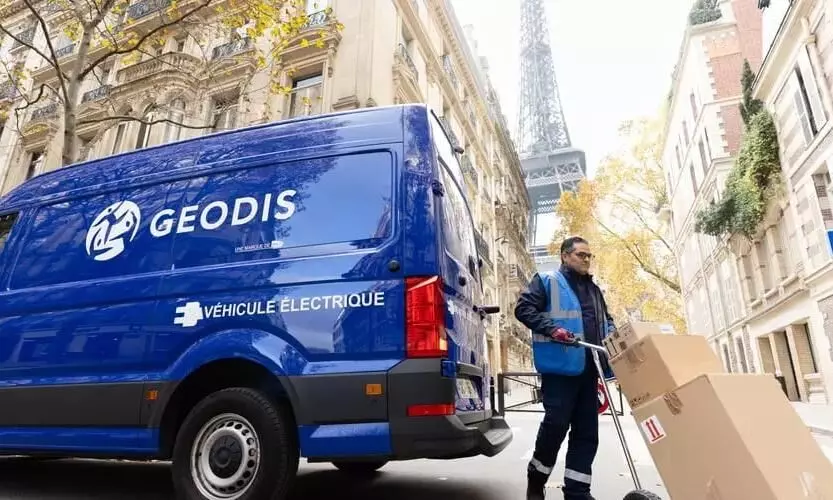
GEODIS to reduce GHG emissions by 42% by 2030
GEODIS has set a target of providing low-carbon last-mile delivery services in 40 French cities by the end of 2024

Global logistics provider GEODIS has set targets of 42 percent for the reduction of the greenhouse gases (GHG) emissions generated by its fleets of vehicles and its buildings (scopes 1 and 2) and 30 percent for the carbon intensity of subcontracted transport (scope 3) by 2030 in comparison with the base year of 2022.
"GEODIS is committed to a process of reducing its carbon emissions through the application of a science-based approach (the Science Based Targets initiative, or SBTi) in compliance with the goal of the Paris Agreement to limit global warming to 1.5° C. This commitment concerns both direct and indirect emissions," says an official release.
Marie-Christine Lombard, Chief Executive Officer, GEODIS says: "For many years, GEODIS has been working seriously alongside its customers and partners on measuring and reducing its impact on the climate. Our new goals will further speed up the process, and they establish GEODIS as one of the most committed companies. This new phase is fully in line with the Group's ambition to make its lines of business more sustainable and to provide our customers with innovative, sustainable and ethical logistics offerings."
GEODIS has defined pathways for each line of business and geographic region, and has taken account of all the levers necessary for decarbonisation, the release added.
"With regard to its own fleet, GEODIS plans to continue the transition towards alternative vehicles and modes using carbon-free or bio-sourced energies and installing suitable infrastructures for refuelling and charging. Collaborative innovation is key to these transformations. As far as last-mile deliveries are concerned, GEODIS has already set a target of providing low-carbon delivery services in 40 French cities by the end of 2024.
"Alongside the transition of its own fleet, GEODIS is carrying out measures to reduce GHG emissions on all forms of transport involved in its operations. Its plan entails the use of sustainable marine fuel (SMF) and sustainable aviation fuel (SAF), giving support to customers seeking to optimise their flows and implement appropriate modal shifts, and permanent optimisation of the efficiency of the resources employed (the latest generation planes, ships and vehicles; optimised loading and itineraries). This transformation depends on selecting subcontractors on the basis of their practices and commitments, and on supporting small road transport companies to help them carry out their own technological transition."
Reducing the carbon emissions of sites assumes a 40 percent improvement in overall energy efficiency as well as the availability of a minimum of 90 percent of low-carbon energy. "Measures to achieve optimisation, whether they concern routing, loading or the energy efficiency of vehicles or sites, make heavy use of increasingly sophisticated digital tools that are very much part of GEODIS's ongoing innovation projects," the release added.


